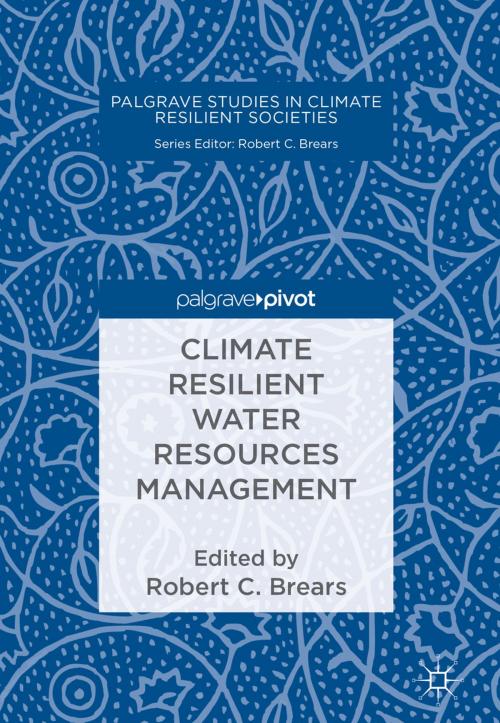Climate Resilient Water Resources Management
Nonfiction, Science & Nature, Science, Biological Sciences, Environmental Science, Earth Sciences, Social & Cultural Studies, Social Science| Author: | ISBN: | 9783319788968 | |
| Publisher: | Springer International Publishing | Publication: | May 23, 2018 |
| Imprint: | Palgrave Pivot | Language: | English |
| Author: | |
| ISBN: | 9783319788968 |
| Publisher: | Springer International Publishing |
| Publication: | May 23, 2018 |
| Imprint: | Palgrave Pivot |
| Language: | English |
The effects of climate change are beginning to impact water quantity and water quality across the globe. However, there is no single action or strategy that any government can implement to ensure a community is resilient to climate change-related extreme weather events while also protecting the natural system. Instead, Robert Brears argues, climate resilient water resources management requires integrated, forward-thinking policies that are not only adaptable to changing climatic conditions but also seek to maximise economic and social welfare in an equitable manner while ensuring the continued health of their ecosystems. This book addresses how several levels of government in different geographical locations, with varying climates, incomes, and lifestyles, have implemented a variety of policies and technologies to ensure communities are resilient to climatic risks, and how these policies preserve and enhance the natural system and its associated ecosystem’s health.
The effects of climate change are beginning to impact water quantity and water quality across the globe. However, there is no single action or strategy that any government can implement to ensure a community is resilient to climate change-related extreme weather events while also protecting the natural system. Instead, Robert Brears argues, climate resilient water resources management requires integrated, forward-thinking policies that are not only adaptable to changing climatic conditions but also seek to maximise economic and social welfare in an equitable manner while ensuring the continued health of their ecosystems. This book addresses how several levels of government in different geographical locations, with varying climates, incomes, and lifestyles, have implemented a variety of policies and technologies to ensure communities are resilient to climatic risks, and how these policies preserve and enhance the natural system and its associated ecosystem’s health.















